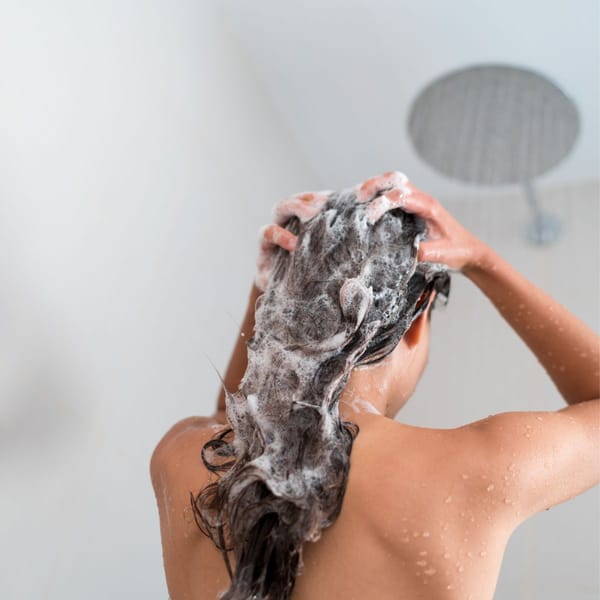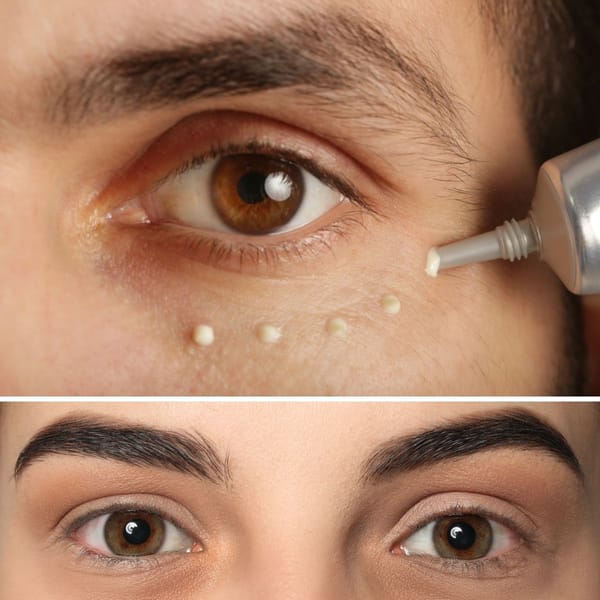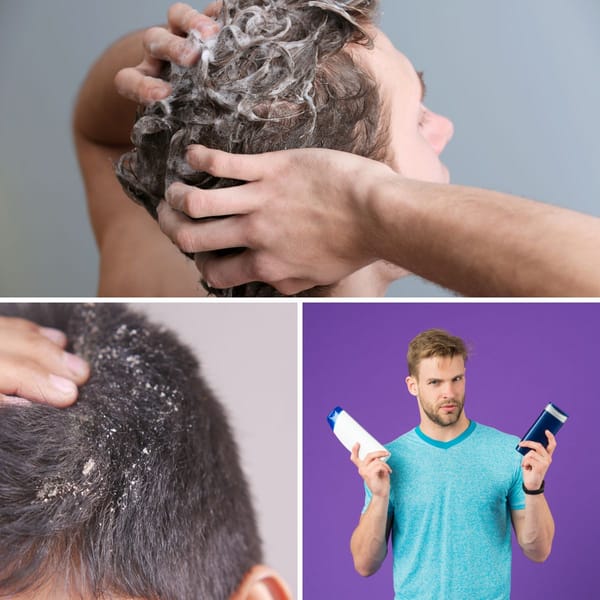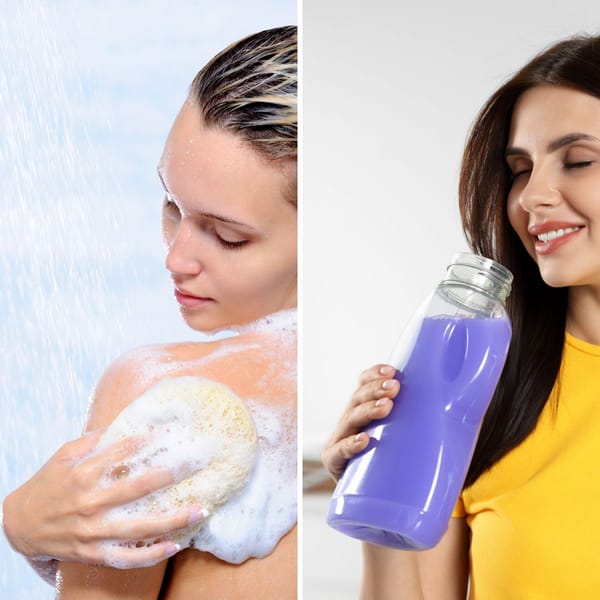Key Takeaways:
- Understanding Your Skin Type: Knowing your skin type is crucial in selecting the best face wash for oily skin.
- Ingredients Matter: Look for ingredients like salicylic acid, glycolic acid, and tea tree oil to effectively manage oily skin.
- Routine and Consistency: Establishing a consistent skincare routine with the right products can significantly improve skin health.
Introduction
Oily skin can be a real challenge to manage. The constant battle against excess oil, clogged pores, and acne can feel like an uphill struggle. But fear not! With the right face wash, you can keep your skin feeling refreshed and looking its best. This article will guide you through the best face washes for oily skin, helping you make an informed decision.
Understanding Oily Skin
Oily skin is characterized by an overproduction of sebum, also known as excess sebum, the natural oil produced by your skin. While sebum is essential for keeping your skin moisturized, too much of it can lead to clogged pores, acne, and a greasy feeling. Understanding your skin type is the first step in choosing the right face wash.
Oily skin can be influenced by various factors, including genetics, hormonal fluctuations, and even diet. It’s essential to recognize these factors to manage your skin effectively. For instance, hormonal changes during puberty or menstruation can increase oil production, making your skin more prone to breakouts.
The Importance of Choosing the Right Face Wash
Selecting the right face wash for oily skin is crucial. The wrong product can strip your skin of its natural oils, leading to increased oil production as your skin tries to compensate. Avoid face washes that contain coconut oil, as it can clog pores and worsen oily skin conditions. This can create a vicious cycle of oiliness and breakouts.
A good face wash for oily skin should effectively remove excess oil without leaving your skin feeling stripped. It should also contain ingredients that help to unclog pores and reduce oil production. Look for products that are specifically formulated for oily skin types.
Key Ingredients to Look For
Salicylic Acid
Salicylic acid is a beta hydroxy acid (BHA) that is highly effective in treating oily skin. It penetrates deep into the pores, helping to unclog them and reduce oil production. This ingredient is particularly beneficial for acne-prone skin.
Glycolic Acid
Glycolic acid is an alpha hydroxy acid (AHA) that helps to exfoliate the skin, removing dead skin cells and promoting cell turnover. This can help to reduce the appearance of pores and improve skin texture.
Tea Tree Oil
Tea tree oil is a natural ingredient known for its antibacterial and anti-inflammatory properties. It can help to calm inflammation and reduce acne, making it an excellent choice for oily skin.
Types of Face Washes for Oily Skin
Foaming Cleansers
Foaming cleansers are a popular choice for oily skin, as they create a rich lather that helps to remove excess oil and impurities from the skin. Look for foaming cleansers that contain ingredients like salicylic acid or glycolic acid for added benefits.
Gel Cleansers
Gel cleansers are another great option for oily skin. They are lightweight and can effectively remove excess oil without leaving a greasy residue. Gel cleansers often contain ingredients like tea tree oil or green tea extract to help calm inflammation.
Oil-Based Cleansers
It might seem counterintuitive, but oil-based cleansers can be beneficial for oily skin. These cleansers work on the principle that "like dissolves like," meaning they can effectively remove excess oil and makeup without stripping the skin. Look for oil-based cleansers that contain non-comedogenic oils like sunflower oil or castor oil.
Best Face Washes for Oily Skin
CeraVe Foaming Facial Cleanser
CeraVe Foaming Facial Cleanser is a top choice for oily skin. It contains ceramides and hyaluronic acid to help maintain the skin barrier while effectively removing excess oil. This cleanser is also non-comedogenic, meaning it won't clog pores.
Neutrogena Oil-Free Acne Wash
Neutrogena Oil-Free Acne Wash is another excellent option. It contains salicylic acid to help unclog pores and reduce acne. This cleanser is also oil-free, making it suitable for oily skin types.
La Roche-Posay Effaclar Purifying Foaming Gel
La Roche-Posay Effaclar Purifying Foaming Gel is a gentle yet effective cleanser for oily skin. It contains zinc pidolate to help reduce oil production and keep the skin feeling refreshed.
How to Use Face Wash for Oily Skin
Using a face wash for oily skin correctly is just as important as choosing the right product. This helps to remove the excess sebum that your skin produces, which can lead to clogged pores and breakouts. Start by wetting your face with lukewarm water. Apply a small amount of cleanser to your fingertips and gently massage it into your skin in circular motions. Be sure to focus on areas that are prone to oiliness, such as the T-zone.
Rinse thoroughly with lukewarm water and pat your face dry with a clean towel. Avoid using hot water, as it can strip your skin of its natural oils and lead to increased oil production. Follow up with a toner and moisturizer suitable for oily skin.
The Role of Exfoliation in Preventing Clogged Pores
Exfoliation is an essential step in managing oily skin. It helps to remove dead skin cells that can clog pores and lead to breakouts. However, it's important to exfoliate gently to avoid irritating the skin.
Look for exfoliants that contain ingredients like salicylic acid or glycolic acid. These chemical exfoliants can penetrate deep into the pores and provide a thorough cleanse. Aim to exfoliate 2-3 times a week, depending on your skin's tolerance.
The Benefits of Double Cleansing
Double cleansing is a technique that involves using an oil-based cleanser followed by a water-based cleanser. This method can be particularly beneficial for oily skin, as it ensures a thorough cleanse without stripping the skin.
Start with an oil-based cleanser to remove makeup and excess oil. Follow up with a water-based cleanser to remove any remaining impurities. This two-step process can help to keep your skin clean and balanced.
The Importance of Moisturizing
Moisturizing is a crucial step in any skincare routine, even for oily skin. Skipping this step can lead to increased oil production as your skin tries to compensate for the lack of moisture.
Look for lightweight, oil-free moisturizers that won't clog pores. Ingredients like hyaluronic acid and glycerin can help to hydrate the skin without leaving a greasy residue.
Common Mistakes to Avoid
Over-Cleansing
Over-cleansing can strip your skin of its natural oils, leading to increased oil production. Stick to cleansing your face twice a day, in the morning and evening.
Using Harsh Products
Harsh products can irritate the skin and exacerbate oiliness. Avoid cleansers that contain alcohol or other drying ingredients. Opt for products that are gentle enough for oily, sensitive skin to avoid irritation and inflammation.
Skipping Sunscreen
Sunscreen is essential for protecting your skin from UV damage. Look for oil-free, non-comedogenic sunscreens that won't clog pores.
The Role of Diet in Managing Oily Skin
Diet can play a significant role in managing oily skin. Foods high in sugar and refined carbohydrates can increase oil production and lead to breakouts. Aim to eat a balanced diet rich in fruits, vegetables, and lean proteins.
Drinking plenty of water can also help to keep your skin hydrated and reduce oiliness. Avoid sugary drinks and opt for water or herbal teas instead.
The Benefits of Natural Ingredients
Natural ingredients can be beneficial for oily skin. Ingredients like tea tree oil, green tea extract, and aloe vera can help to soothe irritation and reduce inflammation.
Look for face washes that contain these natural ingredients for added benefits. They can help to keep your skin calm and balanced. For those with oily or combination skin, selecting the right cleanser is crucial to balance the complexion and control oil production without over-drying the skin.
The Importance of Consistency
Consistency is key when it comes to managing oily skin. Establishing a regular skincare routine and sticking to it can help to keep your skin in check.
Be patient and give your products time to work. It can take several weeks to see noticeable improvements in your skin.
The Role of a Board-Certified Dermatologist
If you're struggling to manage your oily skin, consider consulting a board-certified dermatologist. They can provide personalized recommendations and treatments to help you achieve clearer, healthier skin.
A dermatologist can also help to identify any underlying conditions that may be contributing to your oily skin. They can recommend prescription treatments if necessary.
Summary
Managing oily skin can be challenging, but with the right face wash and skincare routine, you can keep your skin looking its best. Look for products that contain ingredients like salicylic acid, glycolic acid, and tea tree oil to effectively manage oiliness and breakouts. Establish a consistent skincare routine and be patient with your products. If you're struggling to manage your oily skin, consider consulting a board-certified dermatologist for personalized recommendations.
FAQ
What is the best face wash for oily skin?
The best face wash for oily skin is one that effectively removes excess oil without stripping the skin. Look for products that contain ingredients like salicylic acid, glycolic acid, and tea tree oil. Some top choices include CeraVe Foaming Facial Cleanser, Neutrogena Oil-Free Acne Wash, and La Roche-Posay Effaclar Purifying Foaming Gel.
How often should I wash my face if I have oily skin?
It's best to wash your face twice a day, in the morning and evening. Over-cleansing can strip your skin of its natural oils and lead to increased oil production. Stick to a regular cleansing routine and avoid using harsh products.
Can diet affect oily skin?
Yes, diet can play a significant role in managing oily skin. Foods high in sugar and refined carbohydrates can increase oil production and lead to breakouts. Aim to eat a balanced diet rich in fruits, vegetables, and lean proteins. Drinking plenty of water can also help to keep your skin hydrated and reduce oiliness.







